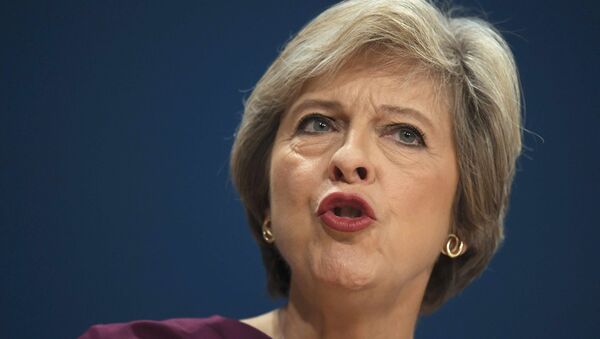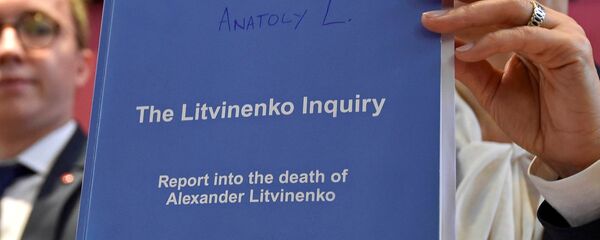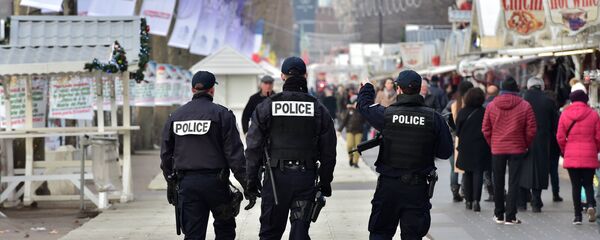All the British media are hailing Sir Tim's appointment as being good news for Britain as he is known to be a "tough negotiator" — a phrase spun out of Downing Street and picked up gleefully by the largely euroskeptic British media.
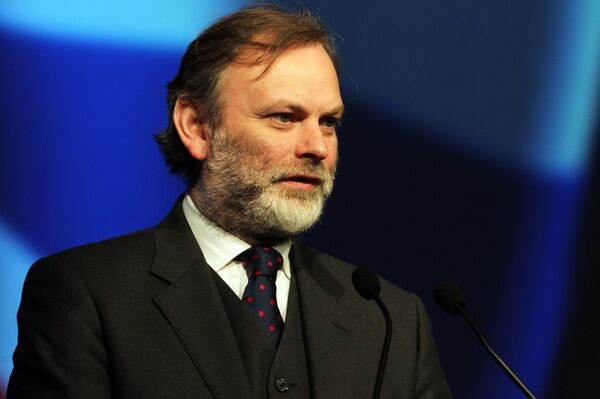
"We are delighted that Tim Barrow is taking up this role. A seasoned and tough negotiator, with extensive experience of securing UK objectives in Brussels, he will bring his trademark energy and creativity to this job — working alongside other senior officials and Ministers to make a success of Brexit," the statement from Number 10 read.
Hence every news outlet spewing out the "tough negotiator" epithet May's minders wanted.
However, the greater story lies — not in the speed with which Sir Tim succeeded his predecessor, Sir Ivan Rogers, who appears to have resigned before he was pushed — in what his appointment says about the importance of Russia in the British Foreign Office and the Brexit negotiations.
Fantastic to have Tim Barrow as new UK Representative to EU. A brilliant and highly respected diplomat who will get the best deal for the UK
— Boris Johnson (@BorisJohnson) 4 January 2017
Barrow took up his appointment, August 2011, as British ambassador in Moscow saying:
"I am very pleased to be returning to Russia. I have good memories of working in Moscow in the early '90s. I look forward to getting to know again this vast and dynamic country and to continuing the steady work of developing relations between our two countries."
His effusively positive comments were designed to highlight the need for him to secure stronger relations — a "reset" — between London and Moscow, which had deteriorated in the early 2000s, with Russia accusing the UK of spying and Britain refusing to extradite the so-called "tycoon" Boris Berezovsky and the Chechen separatist Akhmed Zakayev, as well as the Alexander Litvinenko affair.
Sir Tim had started out in the UK Foreign Office as a desk officer, learning Russian. Before being sent to the embassy i9n Moscow as Second Secretary, and then Head of the Russian Section until 1994. He was appointed ambassador to Ukraine (2006-8) before becoming Representative to the Political and Security Committee of the EU and Ambassador to the Western European Union (2008-11).
Britain needs a big stick to wield when it begins negotiating with Brussels over Brexit — the withdrawal from membership of the EU and its subsequent relationship with the remaining 27 members. Security is Britain's strongest card.
Divided Europe
The EU is riven with splits over migration and the collapse of the Schengen Area, which exposed deep flaws in EU external border security, as well as over the Eurozone, with divisions over economic and fiscal stability.
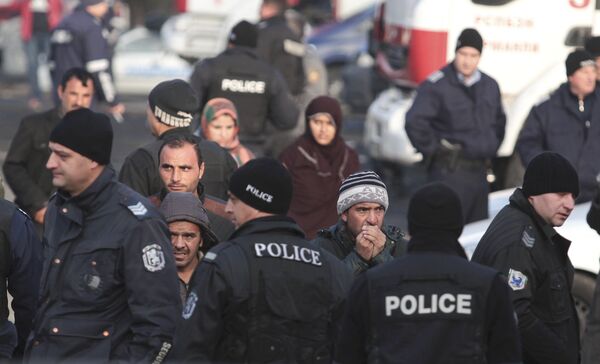
Security — in the light of increased terrorist attacks and warnings of more to come — will be top of the agenda and the EU needs Britain onside more than it thinks. The UK is the biggest player in NATO, excluding the US and Britain has the best intelligence and counterterrorism capabilities in Europe.
Significantly, as the EU continues its sanctions against Russia — while desperately clinging on to its gas feeds — Sir Tim's unique knowledge of Moscow will be seen as a valuable asset — both to Brussels and to Moscow. In any dealings with Russia or Ukraine, Sir Tim has the best insights.
The EU member states will soon come to see that Britain — and its new ambassador to the EU — remains the strongest security partner in Europe — especially with US President-elect Donald Tusk saying Europe should pay its way in NATO.
Sir Tim's understanding of Moscow will be seen as a vital chip in the bargaining pack when it comes to Britain's new relationship with Brussels and the remaining 27 states — which are more deeply divided than many know and only united on one issue: security. And the UK holds the highest cards.

